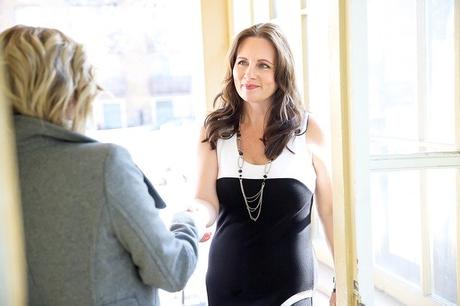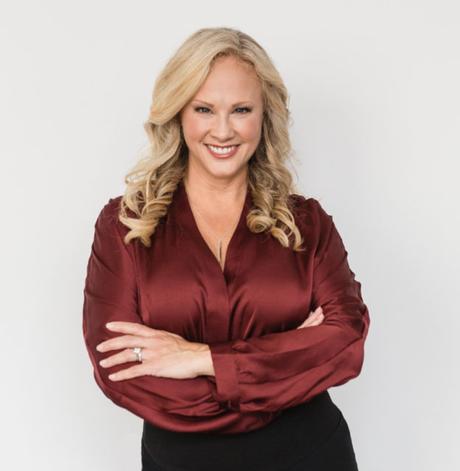
After I had worked for a few years as a college professor, I decided to trade in my classroom for the business world. I worked as a consultant, and I loved it. But less than a year in, my boss asked me to change jobs again. He wanted me to become a sales representative for the consulting firm.
I literally said, "Ick."
That's what I thought about sales and salespeople. I thought they were dishonest, pushy, cheesy and manipulative.
But the boss asked me to give it a try, so I did. And I realized I've been selling my entire life. I just didn't call it sales.
The first thing I learned is that not every sales professional-in fact, not many of them at all-fall into that stereotype of the used car salesman who will tell you anything to make a sale. I, for one, never bought into that.
I prefer a kind of sales called "consultative selling," which is a kinder, gentler approach to selling products and services. In my brand of sales, I find out what the customer needs or wants, and then I figure out if what I have to sell is a match.
If it is, I make a sale. If it isn't, I say so and hope our paths will cross again.
Often they do. Because I strive for the win-win and won't sell anything to anyone who doesn't want or need what I've got to offer, customers return to me again and again. Simply put, they like the way I treat them.

For me, sales is not "icky." For me, selling is a helping profession.
I tell this to anyone who will listen because everyone, believe it or not, has to sell, does sell and benefits from selling every day. In fact, you sell yourself every time you interact with another person.
At work, your job description and title might not even mention sales or selling. But every time you make a good impression on a client or customer, you have sold that person into doing business with your company again. Every time you answer the phone politely or give helpful, friendly service to someone who visits your office, you've sold that person on believing your company is helpful and friendly. Every time you mention to another parent at your kid's soccer game that your company is good at XYZ and that friend hires your company to do XYZ, you've made a sale.
The same is true outside of work. Think about how you convinced your little ones to eat their vegetables. How did you persuade your neighbor to stop parking so close to your driveway? What did you do to get your way when your spouse wanted to go to the beach for vacation, but you wanted to go to the mountains?
You sold them.
Every time you ask for a favor, pitch an idea or try to change someone's mind, you are selling.
Did I just hear you say, "Ick?"
Believe it. You are a born salesperson. We all are.
Children are great at sales. They know which parent to approach first and how to bargain by promising to clean their rooms. They can come up with a dozen reasons why the parents should say "yes" to a purchase, a trip or a later bedtime.
But as they grow up, they hear "no" so often that they stop asking. They're told it's not polite to ask for what they want, so they stop asking. They might fear they're imposing when they ask, so they stop asking.
That's learned behavior.
And that stops many of us-especially women-from using our natural sales ability to get what we want, need and deserve.
The thing is, you deserve to have what you want and need. But you probably won't get it if you don't ask for it.
In my career as a sales professional-I'm a consultant again, but I have my own business, so I have to constantly sell my services-I devised a five-step process for selling that is about helping other people.
This process works whether you are selling widgets, selling a friend on sticking around for dessert or selling yourself during a job interview.

Step 1 is to plan.
Everything in life goes better when it starts with a plan.
To plan for a sale, you can figure out the best person to ask for what you want. You can do enough research to know what that person might get out of helping you: goodwill, a favor in return or a coveted item, for example. You can plan for the best time to ask.
Step 2 is to look for opportunities to make the sale.
If you want more responsibility at work and your manager mentions that she is going to work all weekend to finish a project, for example, volunteer to help her. Your offer will show her that you are willing to go the extra mile.
Step 3 is about establishing trust.
People like to buy from people they know, like and trust. One of the best ways to establish trust is to truly listen to other people so you can learn what they need and want. If you truly want to help other people-and not just get for yourself-they will trust that you have their best interests at heart.
Step 4 is to ask for what you want.
This is the hardest step, especially for women. So many of us have been programmed to take what we're offered rather than to ask for what we want. Here's a hard-and-fast truth: If you don't ask, you won't get. Don't wait around and hope someone will guess what you want or notice that you deserve something. Speak up. Remember: You do deserve it.
Step 5 is my favorite: Follow up with gratitude.
If I make a sale, I thank the person who bought from me. If the person says "no," I still say, "Thank you."
I keep in touch with customers, even with the ones who left empty-handed. You never know when that "no" will turn into a "yes" because the person's situation has changed.
Most important, perhaps, is that I believe in my product. I would never sell something that I wouldn't buy myself.
Consultative selling is about relationships, even when your encounter with someone is brief. Every time you come into contact with another person, you are selling yourself to that person. Every interaction makes an impression that the other person will remember about you. This is your trademark, and how you present yourself to the world. This is your personal brand.
And I know that the most important sale you can make-no matter what product or service you have to offer-is yourself. You have to sell yourself before you can sell anything else. A tip: Adopt personal brand that showcases not your sales skills but the personal qualities that let people know you are not in this just for yourself, qualities like kindness, helpfulness, empathy and honesty.
There's nothing icky about that.
This guest post was authored by Dr. Cindy McGovern

Dr. Cindy McGovern is the author the new book Sell Yourself: How to Create, Live, and Sell a Powerful Personal Brand. Dr. Cindy is the founder of Orange Leaf Consulting, a business consulting firm. She is the creator of The Orange Leaf Academy and the author of the Wall Street Journal best-seller Every Job Is a Sales Job: How to Use the Art of Selling to Win at Work. Known as the First Lady of Sales, Dr. Cindy speaks about personal branding, sales and leadership topics all over the world.
*****
Ms. Career Girl strives to provide valuable insights you can use. To see more from our columnists and guest authors, check these out! Or subscribe to our weekly email featuring our latest articles. We're also present on Medium!

Ms. Career Girl was started in 2008 to help ambitious young professional women figure out who they are, what they want and how to get it.

